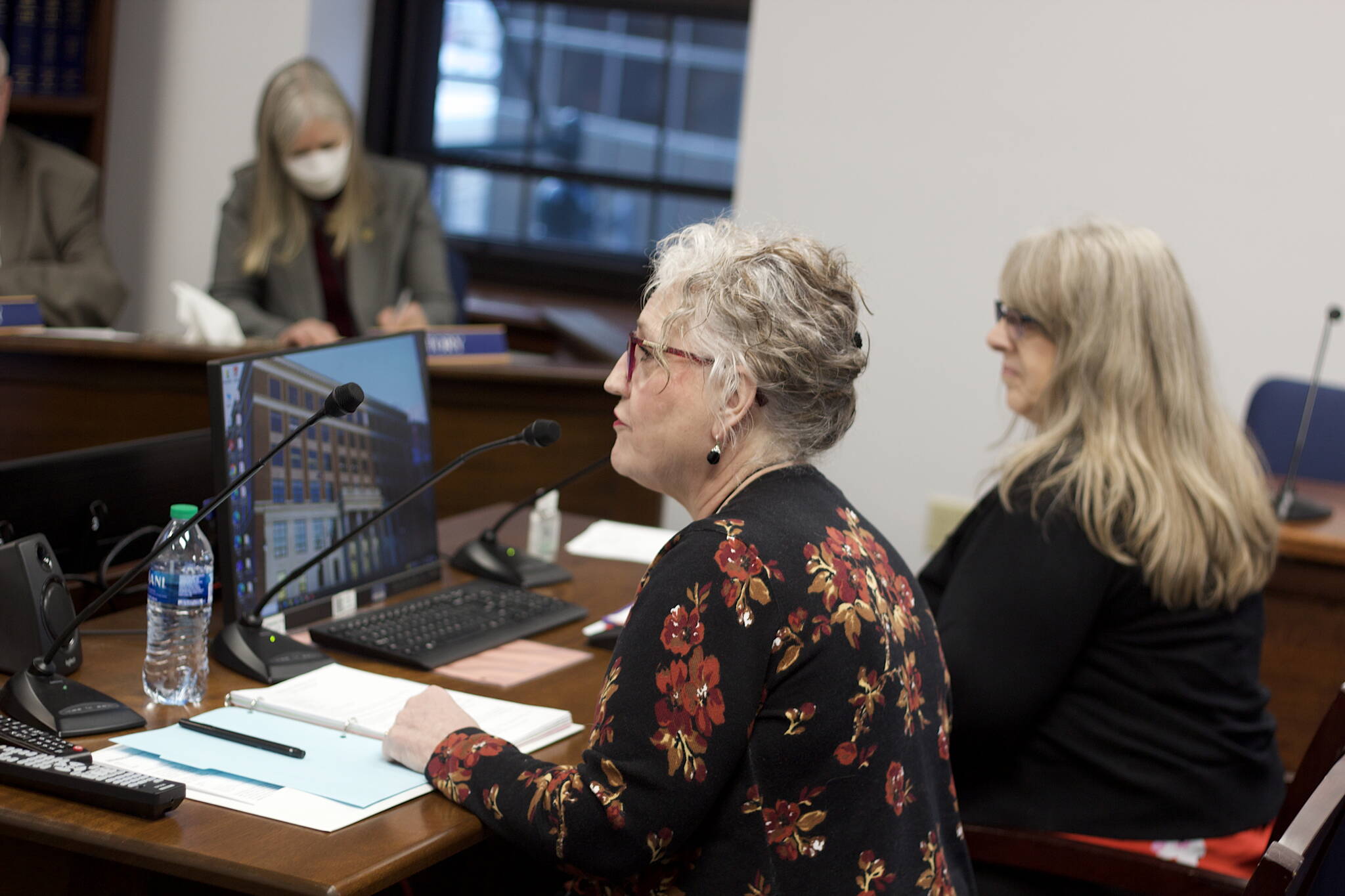The first hearing on Gov. Mike Dunleavy’s proposal to restrict discussion of sex and gender in public schools was an instance of preaching from the converted.
The bill, which Senate leaders say is unlikely to pass that chamber, got enthusiastic backing from those invited to testify during the House Education Committee meeting Monday. Aside from two top state education department officials who provided details of the bill, testimony was limited to two retired teachers supportive of conservative causes who invoked their religious faith in their advocacy.
“Schools should not be a place where the teachers are pressuring students against their morals, or spiritual upbringing,” said Kristine Gugel, a Chugiak resident who has taught public school, homeschooled her children and been a faith-based drug recovery counselor for female prison inmates prison. “Schools should not be a place of indoctrination on matters of deviant sexual identity, or behavior, or other such sensitive matters.”
House Bill 105 (and its companion Senate Bill 96) contains similarities — and some differences — to the so-called “don’t say gay” law enacted in Florida last year and being considered by Republican-led political bodies in numerous other states. Dunleavy’s proposal prohibits sex and gender discussions before the fourth grade, requires parental permission for such discussions for other grades, requires written parental permission for a child to be addressed by a different name or pronoun and requires students to use locker rooms and restrooms according to their biological sex.
While key members of Alaska’s Republican-led House majority are supportive of the bill — including Education Committee Chairperson Jamie Allard, an Eagle River Republican — Senate President Gary Stevens, a Kodiak Republican, said there does not appear to be enough support in the upper chamber’s majority caucus of nine Democrats and eight Republicans to pass the bill. But he said the bill will get at least one Senate committee hearing and it is also scheduled for further consideration by the House Education Committee.
One comment during Monday’s hearing that advocates on both sides have agreed with is focusing on gender pronouns and such issues distracts from more important educational priorities.
“It’s sad to think we’ve allowed our youth to diminish their value of who they are to a pronoun or what they perceive as their sexuality,” said Lisa Stewart, a retired teacher in Wasilla. “When did our sexuality become our identity? Our sexuality is merely a sliver of who we really are.”
But while opponents of what Dunleavy calls a “parental rights” bill argue it inhibits a youth’s freedom of self-determination and ability to confide in educators without risk of harm from parents, Gugel and Stewart echoed the arguments of supporters who said parents should be fully informed about their children’s mental and physical status.
“They know their child best, and they alone have the God-given responsibility for the morals, spiritual, and sexual and medical condition of their children, and they alone will answer for these things as they carry out that responsibility,” Gugel said. “These things are not the purview of public education until and unless the parents request it be so.”
Stewart said age limits exist for thing such as military service and drinking alcohol, and should similarly exist for sex and gender issues so public schools aren’t tolerating or even encouraging what may be a damaging social setting.
“This portion of the bill may provide the safety net needed for students who may be under pressure for acceptance or simply in need of attention as a basic human need, or for students who may need an adult to set boundaries for them to feel safe and give them the wherewithal to reflect on their own boundaries,” Stewart said.
Parental involvement at schools was repeatedly emphasized by Gugel, prompting Sitka independent Rep. Rebecca Himschoot to ask the Chugiak resident if she’s ever been prevented by a school from assisting in a classroom. Gugel said she hasn’t, and one of her daughters and her husband are also similarly active.
“They’re both frequently invited in,” she said.
• Contact reporter Mark Sabbatini at mark.sabbatini@juneauempire.com

